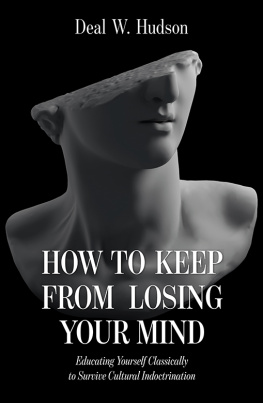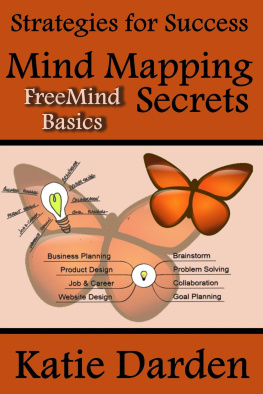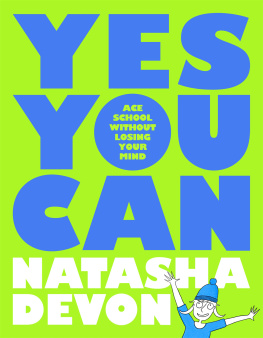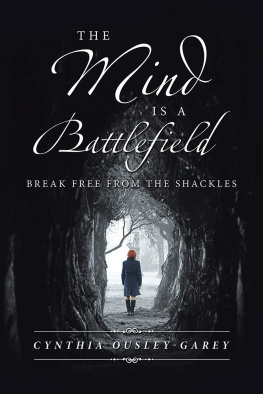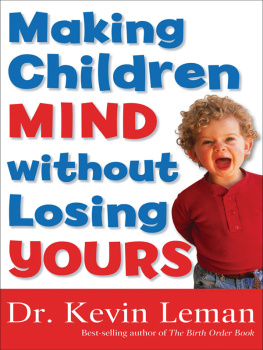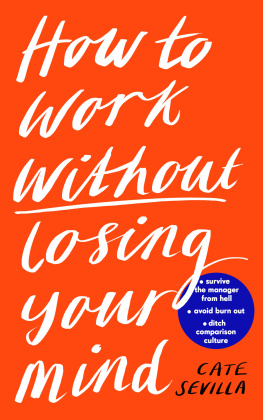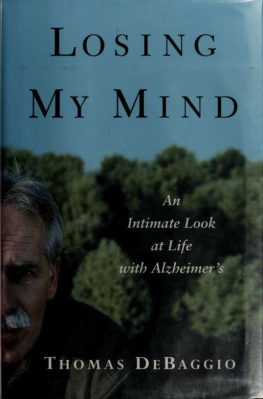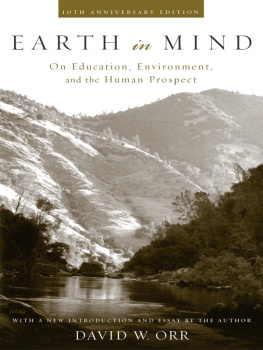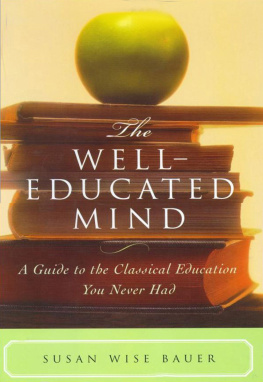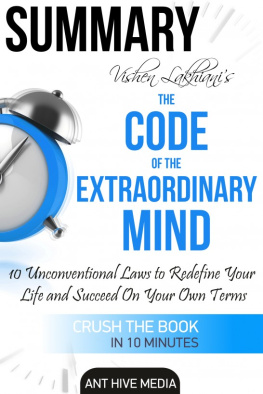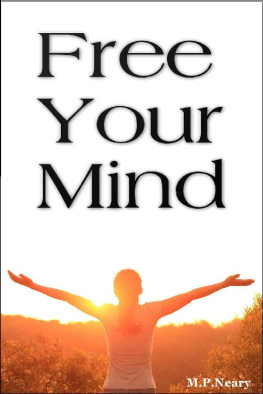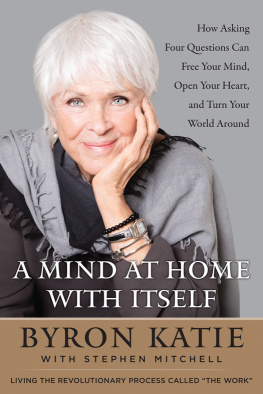HOW TO KEEP
FROM LOSING
YOUR MIND
Educating Yourself Classically to
Resist Cultural Indoctrination
Deal W. Hudson
TAN Books
Charlotte, North Carolina
Copyright 2019 Deal W. Hudson
All rights reserved. With the exception of short excerpts used in critical review, no part of this work may be reproduced, transmitted, or stored in any form whatsoever without the written permission of the publisher.
Unless otherwise noted, Scripture quotations are from the Revised Standard Version of the BibleSecond Catholic Edition (Ignatius Edition), copyright 2006 National Council of the Churches of Christ in the United States of America. Used by permission. All rights reserved.
Cover design by Caroline K. Green
Cover image: Fragment of colossal head sculpture by Freeda / Shutterstock.
Author headshot Renata Grzan / RenataPhotography.com
ISBN: 978-1-5051-1352-5
Published in the United States by
TAN Books
P.O. Box 410487
Charlotte, NC 28241
www.TANBooks.com
Printed in the United States of America
To the Memory of Dr. Mortimer J. Adler
For the sole true end of education is simply this: to
teach men how to learn for themselves; and whatever
instruction fails to do this is effort spent in vain.
Dorothy Sayers, The Lost Tools of Learning, 1947
The further backwards you look, the further forward you can see.
Winston Churchill
When I used to read fairy tales, I fancied that kind of thing
never happened, and now here I am in the middle of one!
Lewis Carroll, Alice In Wonderland, 1865
Praise for How to Keep From Losing Your Mind
Reclaiming the search for Truth, Goodness, and Beauty in our present culture is a pressing task, one required to bring about healing in a society broken by polarization and imprisoned by increasing emotional isolation. By sketching and exploring a wide variety of art, history, literature, and film, Deal Hudson points to the power of the three Transcendental Desires to express the human person beyond mere facts and to understand the world beyond mere assertions. For in the pursuit of these Transcendentals the human soul is communicable and intelligible in a way that political debates, college lectures, or public profiles cannot imitate. By renewing ourselves in the classic works of our common ancestry we can be prepared anew, not just to hear, but also to listen and understand in a more profound way.
Bishop Thomas J. Olmsted, Diocese of Phoenix
Deal Hudson loves the Canon, the Classics, the Great Books. Yet he wants this Canon expanded. But if he loves it why change it? What criterion will he use? Will he displace the dead, white Bard of Avon to make room for some unknown Guatemalan peasant woman of color? What happens if he ignores the politically correct tropes of inclusion, diversity and multiculturalism and, instead, judges a work by its capacity to instill and elicit wonder? What if he expands the Canon to include great film and classical music? And what if he teaches us how to detach ourselves from the thin but relentless world of digitized polemics and to use the power of our attention to rediscover the world of the good, the true and the beautiful? Then I would say that, with St. Paul, he knows that we become what we behold. We all, beholding the glory of the Lord, are being changed into his likeness. What gets our attention gets us. The culture of postmodernism wants you, your sanity, and your freedom. Hudson wants you to escape the mind-numbing magnetism of modern media and enter into that great tradition of human creativity that challenges us to expose falsehoods, confront evil and suffering, live free, and cultivate the many shades of responsible love. Let Deal Hudsons expanded Canon show you How To Keep From Losing Your Mind.
Al Kresta, President/CEO, Ave Maria Communications
and Host of Kresta in the Afternoon, EWTN radio
What we crave is right in front of us, no matter our age or station in life. Deal Hudsons book is an invitation to feed the heart, mind and soul. How could we forget to do so? To put off what is most satisfying in life? Yet that is exactly what we humans tend to do. Deal Hudsons book is an invitation to live fully, to fall in love with what is true and beautiful, to prevent our own spiritual, physical and emotional starvation. A secondary benefit is the best must read, hear and watch list imaginable.
Marjorie Dannenfelser, President, Susan B. Anthony List
CONTENTS
I want to thank my chief editor Steven Phelan for his expert and timely help. My assistant Claire Smith and former student Lisa Gaye Waddell were kind enough to read the entire manuscript and suggest important edits.
My friends Robert R. Reilly, Jens F. Laurson, Francis OGorman, John Kinsella, Frank Buckley, Jeffrey D. Wallin, and Dana Gioia gave me invaluable advice during my research and writing.
The years of support from Steve Clarke, my radio producer, has made the broad scope of this book possible. And its been a pleasure to work with John Moorehouse from TAN Books.
I also want to thank Alan Carson, chair of the Morley Publishing Group, and his wife Alyssa, who have assisted and encouraged my work for over two decades. Marjorie Murphy Campbell and Bill Campbell, also longtime supporters, made it possible for me to find the time needed to write this book.
My wife, Theresa C. Hudson, who helped with the final preparation of the manuscript, patiently allowed me to work for months with quiet and little interruption. My son, Cyprian Hudson, graciously kept me supplied with iced tea and corrected several points of history. My daughter, Hannah Hudson, though miles away, reminded me repeatedly of her love and support.
Finally, I want to express my gratitude to Frank Hanna III and David Hanna for their loyalty and generosity to my family and me.
A t the age of seventeen, I was fortunate to have met a teacher who transformed my mind and, as a consequence, my entire life. He was the janitor at my high school in Fort Worth, Texas. I was in the senior play The Diary of Anne Frank, and each night after play practice, he would help us clear the stage for the following day.
We would talk casually about what I was studying, what I liked, and why. One day he asked me if I knew anything about Socrates and Plato. I told him I knew the names, of course, but that was all. The next day he brought me the most beautiful book I had ever seenThe Complete Dialogues of Platoin a box with a silk thread hanging outside the pages. Just like the Bible!
The janitor, whose face has remained with me even though I have regrettably forgotten his name, suggested I read the Apology and the Crito so we could talk about them the next evening. Holding such a magnificent book, I could hardly refuse. That night I read both dialogues and prepared to meet him after rehearsal the next evening.
As we sat down on some stage props, he surprised me. He didnt ask me about the dialogues but posed the question, What comes first, existence or essence? I was instantly intrigued and a bit afraid to give the wrong answer (I didnt know yet that philosophers have debated the question for millennia). After asking him to explain the question further, I concluded, It must be existence! He smiled, insisting I keep the precious book. I looked for him in the days following the performances, but I never saw him again.
It was only years later that I realized he had induced me to reflect on the mysteries of existence. What is existence? Why do things exist at all? Is existence good? How is my human existence different from that of other existing thingsanimal, plants, minerals, air, and water? Does God exist as I had been taught to believe? What about angels? My teachers simple question had shaken me, and it seemed the back of my mind had opened up, letting in a flood of new questions. It was indeed life-changing.

